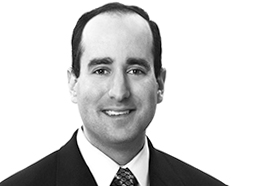This article considers the characteristics that define a university, and a university education. It is part of our series featuring insights from Dr. Robert A. Scott, President Emeritus of Adelphi University and Ramapo College of New Jersey, and senior advisor to the Grant Thornton Higher Education practice.
Throughout the country, politicians, market researchers and even some college trustees assert that the answer to college enrollment challenges is to emphasize career preparation and forgo the humanities. However, this does not recognize the role of higher education in the preparation of citizen-leaders.
The “higher” element of higher education is the transformational experience of engaging with ideas: learning history, historical analysis and scientific research methods, including the difference between causality, correlation and coincidence; developing the imagination through literature and art; learning empathy and compassion through stories, film and internships; and pausing to reflect on what is learned, all with a teacher as a guide.
This form of higher education differs from training and the often transactional nature of mastering a skill. Skills training focuses on an immediate return for investment of time and money, often with limited attention to historical context or questions. It emphasizes work readiness and economic benefits more than scholarly inquiry, professional advancement and citizenship preparation.
A university education
A true university education embraces the functions of curating the past, creating future knowledge and knowledge-makers, and fostering critical thinking about assertions and assumptions. A university is focused not only on present answers but also on future questions. In essence, a university is more about its mission and aspirations for learning than it is about specific departments, although it is difficult to think of a reputable university that does not teach history, literature and philosophy.
A university has a broad mission that is approved as part of a state charter. It honors the pursuit of truth through evidence, not faith. It is more than a library, although it stores knowledge; it is more than a salon, although it promotes debate; and it is more than a museum, although it preserves the past. It is all of these and more. It fosters innovation and develops new approaches to knowledge through a bottom-up approach inspired by the questions of faculty, students, and community activists and a top-down approach in response to the initiatives of private foundations and governments.
Through General Education course requirements as well as mastery of a major discipline, university students are prepared to continue learning throughout their lives and careers. They study basic questions about the meaning of life and what it means to be a good person.
A commitment to serve
When an institution reduces its commitment to a broad general education in favor of a limited focus on career skills, it can no longer be considered a college or university. It becomes a training school, perhaps equally valued and necessary, but not the same. It does not serve society or the individual in the same way and does not provide the societal or individual benefits of a university education.
What, then, is a university? What are its distinguishing characteristics? In what ways is it different from a college?
To begin, we should stipulate that there are certain universal characteristics defining a university, but the label can be used indiscriminately. For example, Dartmouth College has 18 doctoral programs and a medical school, yet it is called a college. At the same time, Bucknell University offers 11 master’s degree programs and no doctoral programs, but it is called a university. In each case, history provides an explanation. Dartmouth retains the label “college” because of its commitment to undergraduate education. Bucknell was founded as the University at Lewisburg before being renamed for a major benefactor and aspired to provide advanced education, including medicine. For many years and in many places, municipalities and private donors provided the funding for institutional aspirations.
Some institutions, such as Rider and Monmouth in New Jersey, adopted the label “university” because they recruit students from other countries, where the label “college” often means high school. Many public institutions took on the label “university” after they expanded their scale and scope from teachers’ college to regional state college, and then to a more comprehensive mission that included doctoral programs.
The characteristics of a university have implications for its governance, leadership, faculty, students, organization and society, as well as quality controls and tax status. Voluntary accreditation and state and federal laws and regulations are implicated as well. Often, a university consists of several colleges, one of which is dedicated to the arts and sciences.
Historical precedent
There is a long and rich history to the development of universities. The first is commonly thought to be in Bologna, Italy, founded in 1088. Throughout the ensuing centuries, institutions called “university” were founded in other countries, although their scale, scope and focus evolved over time. However, the central mission as a community of teachers and scholars, a gathering place for ideas, remained.
In the 19th and 20th centuries, major thinkers such as John Henry Newman, Thorstein Veblen, and Clark Kerr, among others, added to our thinking about the essence of the university. This essence includes deep and learned study, serious and impassioned debate about ideas, and knowledge for its own sake, not its utility.
The modern American university as we know it has evolved and continues to evolve. We borrowed ideas from German research universities and English universities focused more on undergraduate students preparing for the clergy and teaching by studying a classical liberal arts curriculum. Consequently, our institutions of higher learning became places of aspiration for learning about the past and the future while being rooted in the present.
Today and tomorrow
So, when is a university no longer a university? One answer is: When it gives greater priority to skills for today than to advanced learning for tomorrow. This does not mean that a university cannot offer skills training, or that a college cannot aspire to and offer advanced scholarship. It is not the name but the mission that counts. An institution can also weaken its purpose as a university if it becomes so focused on professional studies and technical research that it diminishes its attention on preparing undergraduates for ethical citizenship as well as careers and commerce.
It is not the organizational style or its component parts, but the purpose that defines a university.
Contact:



Head of Not-for-Profit & Higher Education Industry
Partner, Audit Services, Grant Thornton LLP
Grant Thornton Advisors LLC
Dennis Morrone is the National Managing Partner of Grant Thornton's Not-for-Profit & Higher Education Practices.
Edison, New Jersey
Industries
- Not-for-profit & Higher Education
Service Experience
- Advisory Services
- Operations and Performance
- Audit & Assurance Services
- Finance Transformation
- Accounting Advisory
- Employee Benefit Plan Audit
- Transaction Advisory
Content disclaimer
This Grant Thornton Advisors LLC content provides information and comments on current issues and developments. It is not a comprehensive analysis of the subject matter covered. It is not, and should not be construed as, accounting, legal, tax, or professional advice provided by Grant Thornton Advisors LLC. All relevant facts and circumstances, including the pertinent authoritative literature, need to be considered to arrive at conclusions that comply with matters addressed in this content.
Grant Thornton Advisors LLC and its subsidiary entities are not licensed CPA firms.
For additional information on topics covered in this content, contact a Grant Thornton Advisors LLC professional.
Trending topics

No Results Found. Please search again using different keywords and/or filters.
Share with your network
Share